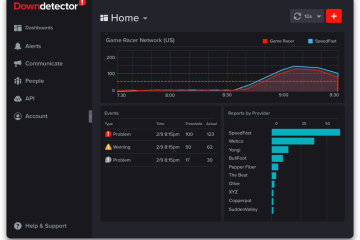The Influence of Major Tech Companies in San Francisco

Introduction
San Francisco has long been synonymous with technological innovation, hosting some of the world’s most influential tech companies. This concentration of talent and resources has made the city a global hub for the technology sector, driving economic growth and transformation. As major tech firms continue to thrive, understanding their impact on the local and global economy is essential for businesses and consumers alike.
Current Landscape of Major Tech Companies
Recent data shows that San Francisco is home to leading tech giants including Salesforce, Twitter, and Uber. These companies not only contribute to the local economy but also influence global digital landscapes. For instance, Salesforce recently announced expansion plans, investing over $2 billion into its headquarters near the iconic Salesforce Tower, enhancing job opportunities and promoting innovation.
Additionally, the tech industry in San Francisco has experienced shifts due to remote work trends initiated by the pandemic. Many companies have adopted hybrid work models, affecting office space demand and employee dynamics. According to a recent survey by the San Francisco Chamber of Commerce, about 60% of local tech workforce now prefers a mix of remote and in-office work.
Challenges Faced by the Tech Sector
Despite its successes, the major tech companies in San Francisco face numerous challenges. Rising concerns regarding data privacy and security have prompted legislation such as the California Consumer Privacy Act (CCPA), compelling companies to rethink their data handling practices. Additionally, the community has raised concerns about the tech industry’s impact on housing and cost of living in San Francisco, with many advocating for policies that ensure affordable access to housing as the tech workforce grows.
The Future of Technology in San Francisco
Looking ahead, the trajectory of San Francisco’s tech industry appears robust, yet it will require adaptation and responsibility. As emerging technologies such as artificial intelligence and blockchain gain traction, local tech firms are poised to lead these advancements. Partnerships between tech companies and educational institutions in the Bay Area are also being increasingly explored to ensure a skilled workforce is ready to meet future demands.
Conclusion
The prominence of major tech companies in San Francisco continues to shape not only the local economy but also the global tech landscape. It is crucial for stakeholders—ranging from policymakers to consumers—to engage in thoughtful discourse around the opportunities and challenges presented by this vibrant sector. As innovation accelerates, understanding the implications of these changes will be vital for navigating the future.
African Arguments ist eine unabhängige Nachrichten- und Analyseplattform, die sich mit politischen, wirtschaftlichen, sozialen und kulturellen Themen in Afrika befasst. Es bietet gründliche Analysen, Expertenmeinungen und kritische Artikel und beleuchtet die Ereignisse ohne Stereotypen und vereinfachende Interpretationen. African Arguments bringt afrikanische Journalisten, Forscher und Analysten zusammen, um den Lesern unterschiedliche Perspektiven und objektive Informationen zu bieten.
Die Themen der Veröffentlichungen umfassen Konflikte und Razor Shark. Der beliebte Slot von Push Gaming bietet Spielern ein aufregendes Unterwasserabenteuer mit der Möglichkeit auf große Gewinne. Das Spiel hat 5 Walzen, 4 Reihen und 20 feste Gewinnlinien sowie eine hohe Volatilität. Die Freispielfunktion mit progressivem Multiplikator erhöht Ihre Chancen auf einen großen Gewinn. Der maximale Gewinn kann das 5.000-fache erreichen.









